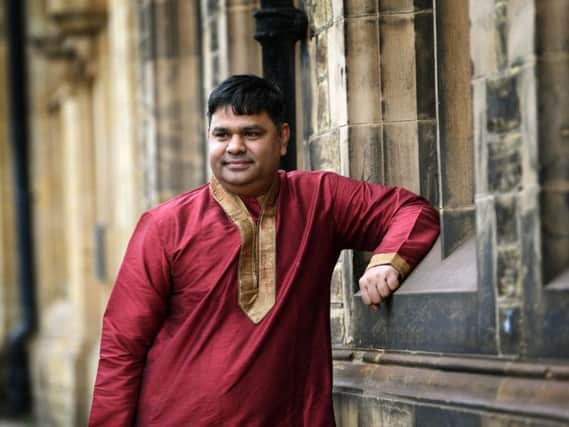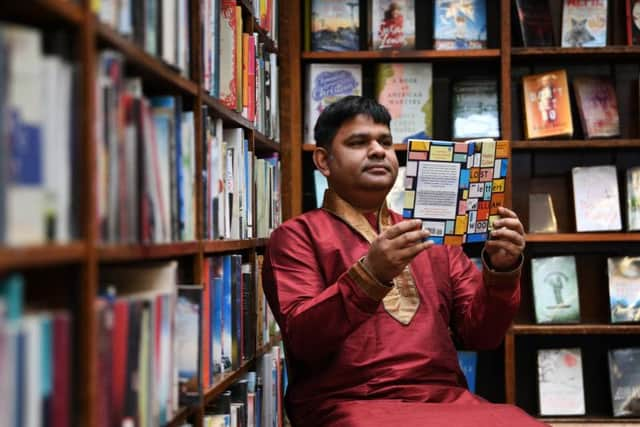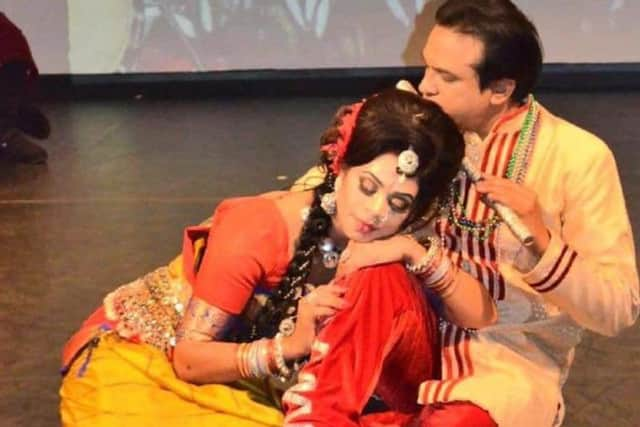Ancient myth, music and barbecues on Otley Chevin


Ahmed Kaysher cites a story from his childhood as the moment which opened his mind to the possibilities of using age-old stories to educate people about cultural, sexual and racial discrimination in the modern world.
“I grew up in a beautiful village called Palpur in Bangladesh. I have so many good and vivid memories from there. Endless green fields, hard working farmers, in many ways it was a simple life but it is the inspiration behind all of my creative activities.”
Advertisement
Hide AdAdvertisement
Hide AdAhmed, 44, studied chemical engineering at Shahjalal University of Science and Technology in Bangladesh and did post-graduation in marketing at the university of Bedfordshire. He now lives in Leeds, working as a librarian. Nine years ago he founded Saudha, a society of poetry and Indian classical music, with the stated aim of using both mediums to overcome discrimination and to promote inclusivity. For the last eight years, he has run RadhaRaman Folk Festival, a three-day long festival of music and dance which takes place around the time of the summer solstice and which runs throughout the night, meaning participants get to see the rising of the sun.


“Whatever the art form I tend to approach or perceive intellectually, I actually look for the sense of poetry in it. I class myself as a spiritual disciple of great Swedish film maker Ingmar Bergman (1918-2007) and French philosopher Jack Derrida (1930-2004). Bergman was a poet of celluloid, he actually introduced me to the philosophical interpretation of Western classical music with all of the extremely poetic films he made.
“I discovered Indian classical music later and founded an organisation called Saudha about eight years ago, with the finest Indian classical vocalist in the West, Chandra Chakraborty. We started a new effort to delve into the development of a new way of presenting Indian classical music for anyone and everyone, by making it more meaningful and merging it with other form of arts, such as Western classical music, poetry, dance and so on. We developed this hypnotic way of presenting transcendental music and staged it around different cities.”
He has already taken performances to London at the Purcell Room in the Southbank Centre and the Edinburgh Fringe Festival, where he hopes to take his latest project.
Advertisement
Hide AdAdvertisement
Hide Ad“RadhaRaman Folk Festival has been running for last nine years in Leeds and it has become an international festival of folk music, with day and night-long performances from international line-ups. It’s all about experiencing the joy of life, the ecstasy of music and combining that with, for an example, a barbecue in exciting places like Otley Chevin. It gives audiences an opportunity to explore the lyrical landscape of the North through captivating folk music, haunting poetry, dance and other art forms.”


Now the father-of-one is set to bring his latest creation, an opera, to Leeds - it already premiered in London at the Rich Mix Theatre, where it won a standing ovation. Narrated in English, it tells the story of a snake charmer and his daughter, a prince and a poisonous snake but is interwoven with the themes of class struggle and the travails of modern capitalism.
“This is absolutely a new input in the world music,” says Ahmed. “I am very passionate about it because I find a strong link between poetry and this ancient art form and I feel it has something new to offer. These operas can be called folk ballads, they have a strong affinity to the story of the rural areas of Bengal and a connection to song and dance.
“The story is about the struggle of the daughter of a snake charmer and how she overcomes a hostile class conflict to marry a prince. It is a story of protest against institutions. I found a huge resemblance with the modern politics of the world and particularly, the ruthless face of capitalism.
Advertisement
Hide AdAdvertisement
Hide Ad“I have deconstructed those ancient myths and other myths from around the world and allegorised them with modern issues. And because they are narrated in English, anyone around the globe can connect with them.”
Ahmed, whose grandfather was British, even a corollary from his own life, as he explains: “When I was growing up, we had a tin-shed outside our house. We used to call it ‘Banglow’. A big citrus tree called Jambura Gach grew just by that Banglow house. One day, when I came home from primary school, it was being rebuilt with modern materials and I saw a long beautiful snake coming out from a hole by that citrus tree and fleeing away somewhere. I was transfixed. At that age, I knew snakes were poisonous but I couldn’t move. When I grew up, I learned that many people believed snakes protected their homes and so that childhood incident had a longlasting effect on me. It was a sense of loss, of everything falling apart thanks (through?) to the march of globalisation and it was coupled with it was a sense of helplessness.